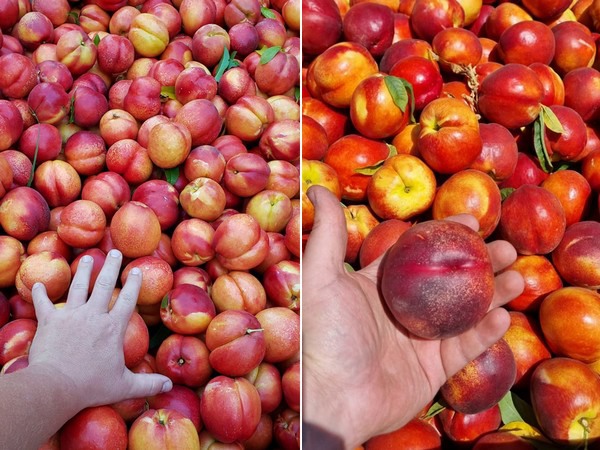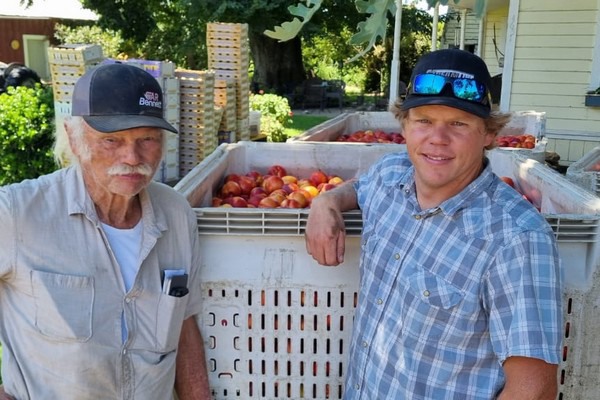California’s rainy winter was great for the snowpack in the mountains and water runoff in spring and summer. However, the colder weather pushed harvest of stone fruit back about two weeks and production is expected to be down about 30 percent. “Rain during blossom was not ideal for pollination and caused a decrease in volume,” says Magnus Olson with Olson Family Farms. The company grows 26 different varieties of organic stone fruit, including peaches, nectarines, apricots, and plums and most varieties have seen production come down by almost a third this season.
 Different nectarine varieties.
Different nectarine varieties.
Bigger size and more uniform
While volume is down, Olson is very happy with the quality of the fruit. “In May and June, the weather was perfect. A combination of reasonable daytime temperatures and cool evenings made the fruit thrive. Often, it becomes too hot too early, but not this year. As a result of the perfect conditions, the fruit has grown bigger in size and is also more uniform. The rains came early enough in the system that they didn’t hinder the fruit. In fact, the wet weather has improved the quality,” he added.
 Magnus Olson and his dad.
Magnus Olson and his dad.
High pricing
“Because stone fruit was available in stores about two weeks later, people were anxiously waiting and demand has been strong,” Olson shared. As a result, pricing is up, and the higher pricing has been holding longer than it has in the past. This first week of July, a box of peaches runs between $28 and $33 while the same time last year, a box was between $22 and $27. The higher prices help with offsetting increased labor costs and other cost increases. While demand is very strong, Olson Family Farms is still able to fulfill everyone’s needs.
“Record rain and snowfall from winter storms have been a blessing and the snow up in the mountains is really critical,” said Olson. “As a result, we are able to use surface water this year instead of having to pump groundwater.” During years of drought, Olson’s farm sometimes had zero water allocation and relied on groundwater for irrigation the entire season. Last year, surface water lasted four weeks, but 2023 should see a full season of service water. “I can’t remember the last time surface water got us through the entire season, but it was probably in the early 2000s.”
“All in all, it’s a blessing of a year. If production would have been closer to average, it would have been one of the better years ever,” he finished.
 This winter, Tulare Lake was formed due to the record rainfall. It is estimated to hold water for more than a year.
This winter, Tulare Lake was formed due to the record rainfall. It is estimated to hold water for more than a year.
The Olson family immigrated from Sweden in 1889 and came to California’s Central Valley. They started in the dried fruit business and transferred into fresh stone fruit. The company is an early adopter of organic farming as for many years, their entire stone fruit crop has been organically grown. The company is still a family-owned business and is in its fifth generation.
 For more information:
For more information:
Magnus Olson
Olson Family Farms
Tel: (+1) 559-393-7225
www.olsonfamilyfarms.com
